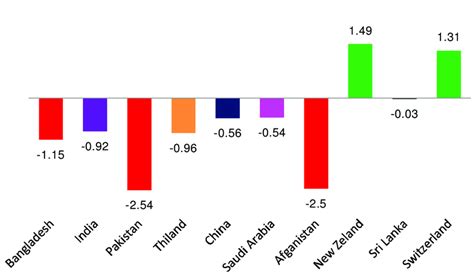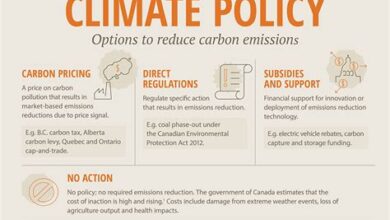The Impact of Political Stability on Economic Growth: Insights from Various Countries

Explore the definition, historical examples, economic indicators, case studies, and strategies for achieving political stability in this comprehensive blog post.Political stability plays a crucial role in shaping a country’s economic growth and development. As a blogger interested in global affairs and economics, it is important to understand the impact of political stability on economic progress. In this blog post, we will explore the concept of political stability and its historical examples, as well as its economic indicators and the case studies of economically stable nations. By delving into these aspects, we can gain insights into the strategies for achieving and maintaining political stability. Understanding these factors will provide a comprehensive perspective on how political stability influences economic growth in various countries. Join me as we delve into the intricate relationship between political stability and economic development, and examine the effects it has had on different nations around the world.
Definition of Political Stability
Political stability refers to the sustainability of a government and the ability of the political system to endure internal and external shocks without major disruptions. It is characterized by a peaceful and orderly political process, an effective rule of law, and the absence of social unrest or violence. This stability is essential for the smooth functioning of a society and the growth of its economy.
Furthermore, political stability can also be defined as the ability of a government to maintain its authority and legitimacy, while also avoiding sudden changes in policy or leadership. It is a crucial factor for attracting foreign investment, fostering economic development, and promoting social cohesion within a country. A politically stable nation is more likely to experience long-term economic growth and prosperity, as it provides a conducive environment for businesses to operate and thrive.
In conclusion, political stability is a fundamental aspect of governance that contributes to the overall well-being of a nation. It is closely linked to economic growth, social development, and international relations. Understanding and promoting political stability should be a priority for governments and policymakers seeking to create a conducive environment for sustainable growth and development.
Historical Examples of Stable Governments
Throughout history, there have been numerous examples of stable governments that have stood the test of time and provided a strong foundation for economic growth. One such example is the Roman Empire, which maintained a stable government for hundreds of years, allowing for the implementation of various economic policies and trade practices that contributed to the empire’s prosperity. The stability of the government also enabled the Roman Empire to maintain a strong military, which further solidified its position as a dominant economic power.
Another historical example of a stable government is the Chinese Ming Dynasty, which ruled for nearly three centuries and saw significant economic growth and cultural advancement. The stability of the government allowed for the establishment of trade routes, the introduction of new technologies, and the implementation of agricultural reforms, all of which contributed to the economic prosperity of the dynasty.
Furthermore, the British Empire, with its stable government and well-established legal system, was able to expand its influence globally and become a major economic power during the 18th and 19th centuries. The stability of the British government allowed for the implementation of policies that promoted industrialization, trade, and investment, laying the groundwork for the country’s economic success in the years to come.
Economic Indicators of Political Stability
Political stability has long been recognized as a critical factor in a country’s economic growth and development. A stable political environment provides the foundation for long-term economic planning and investment, attracting both domestic and foreign investors. Economic indicators can help to gauge the level of political stability in a country, allowing policymakers and analysts to assess the potential risks and opportunities for economic growth. These indicators can include various factors such as inflation rates, exchange rates, employment levels, and government debt.
One important economic indicator of political stability is the inflation rate. High and unpredictable inflation can create uncertainty for businesses and consumers, leading to decreased investment and spending. A stable political environment, on the other hand, can help to maintain low and predictable inflation levels, providing a conducive environment for economic growth.
Exchange rates are another key indicator of political stability. A stable political environment can help to maintain a stable exchange rate, which is essential for international trade and investment. A fluctuating exchange rate can create uncertainty for businesses engaged in international trade, potentially hindering economic growth.
Case Studies of Economically Stable Nations
When we talk about economically stable nations, it is important to look at countries that have demonstrated consistent economic performance and resilience over time. These nations serve as excellent case studies to understand the factors that contribute to their economic stability.
One such example is Singapore, which has shown remarkable economic stability despite its small size and lack of natural resources. Through prudent fiscal policies, strategic investments in education and technology, and a business-friendly environment, Singapore has managed to attract foreign investments and develop a diverse and competitive economy.
Another case study is Switzerland, known for its strong economic fundamentals, low unemployment rate, and stable political environment. Switzerland’s emphasis on innovation, high-quality infrastructure, and a skilled workforce has played a significant role in ensuring long-term economic stability.
Strategies for Achieving Political Stability
Strategies for Achieving Political Stability
Political stability is crucial for the development and growth of a country. It enables governments to implement long-term policies and attract foreign investments, which are essential for economic progress. However, achieving political stability is a complex process that requires careful planning and implementation of effective strategies.
One strategy for achieving political stability is to promote inclusive governance and ensure the participation of all segments of society in the decision-making process. Inclusive governance helps to build consensus and unity among different groups and reduces the risk of social unrest and political instability. Countries such as Canada and Denmark have successfully implemented inclusive governance models, which have contributed to their long-term political stability.
Another strategy for achieving political stability is to strengthen institutions and the rule of law. Strong and independent institutions, such as the judiciary and regulatory bodies, play a critical role in upholding the constitution and ensuring the accountability of public officials. A strong legal framework helps to prevent corruption and abuse of power, which are major threats to political stability. Singapore and Sweden are known for their robust legal systems and efficient governance, which have contributed to their political stability and economic prosperity.





